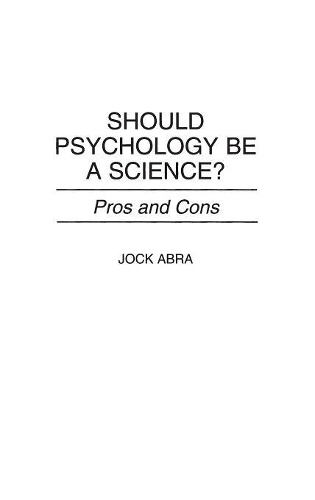
Should Psychology Be a Science: Pros and Cons
(Hardback)
Publishing Details
Should Psychology Be a Science: Pros and Cons
By (Author) Jock Abra
Bloomsbury Publishing PLC
Praeger Publishers Inc
30th March 1998
United States
Classifications
Tertiary Education
Non Fiction
150.1
Physical Properties
Hardback
272
Description
Becoming an empirical science has had mixed results for psychology. This book describes some of the characteristic assumptions, rules and common strategies, both as they appear in any science and as they appear in psychology, along with notable contributions that exemplify each, difficulties that have been created and the alternatives to them. The past century has seen many changes in the study of psychology. One of those major changes was the adoption of scientific principles to define and build the discipline of psychology. These principles were manifested in the discipline's method of investigation and subject matter. For many, this constituted a "revolution" in the study of psychology. This work examines the results of this revolution and asks whether it has been beneficial. The author explains how the psychology-science union came about and examines the positive and negative results. He then describes the major characteristics of science (empiricism, generalization, hypotheses, theories and models, analysis, reductionism and determinism), explaining how each principle was utilized in regard to psychology. Dr. Abra also includes information on psychology's most eminent authorities who have fundamentally influenced its directions.
Author Bio
JOCK ABRA is Professor of Psychology at the University of Calgary.
